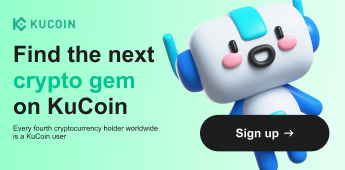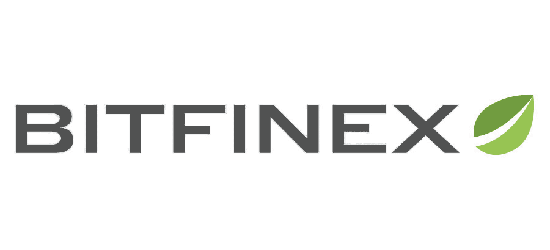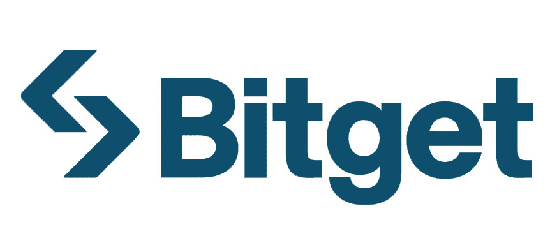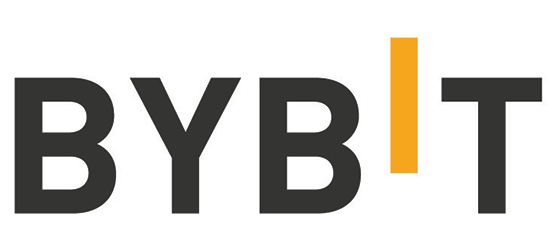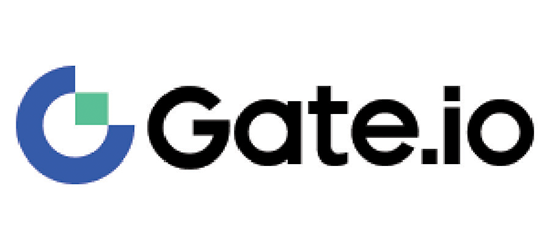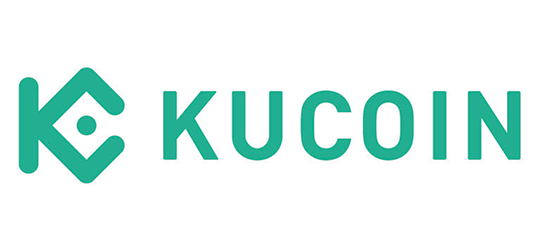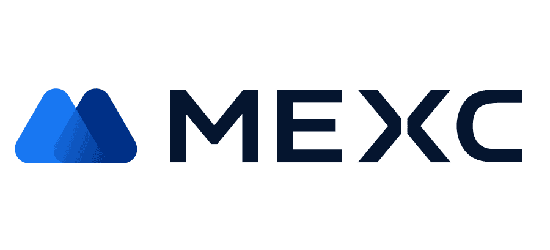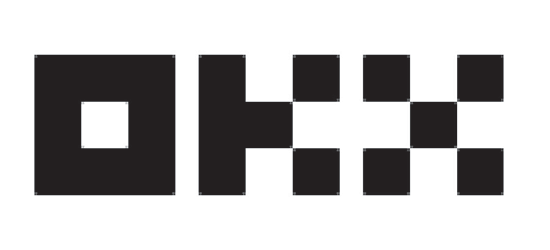
Top 10 NFT Wallets to Safeguard Your Digital Assets in 2023
Explore the best NFT wallets of 2023 to securely manage and trade your digital assets. Find the perfect NFT wallet to fit your needs and requirements.
In this guide, we'll discuss the 10 best NFT wallets for 2023 that cater to a variety of needs and preferences, ensuring you can find the perfect solution. By the end, you'll have a comprehensive understanding of popular NFT wallets, their unique features, and how they can help you securely store and trade your NFTs. We also recommend studying our text on the best NFT marketplaces.
Best NFT Wallets
MetaMask
MetaMask is a leading NFT and cryptocurrency wallet, initially launched in 2016 by ConsenSys, a prominent blockchain technology company founded by Ethereum co-founder Joseph Lubin. Available as a browser extension for Chrome, Firefox, and Brave, MetaMask has established itself as a go-to wallet for managing Ethereum-based assets, including ERC-721 tokens, making it ideal for most NFT marketplaces.
Pros:
- The wallet's compatibility with Ethereum-based assets is particularly significant, as the Ethereum network hosts the majority of NFT projects and marketplaces. As a result, MetaMask has gained widespread popularity among NFT collectors, traders, and creators.
- One of the key advantages is its user-friendly UI, which makes it accessible and easy to navigate for both beginners and expert users. From managing coins to enabling users to easily send and receive Ethereum and other ERC-20 as well as interact with DApps (decentralized applications) this platform has everything for you.
- It has integrated the DApp browser further to enhance its user experience, as it allows users to directly connect to various decentralized platforms, such as NFT marketplaces, decentralized exchanges, and lending platforms, without leaving the wallet. This feature streamlines the user experience, enabling seamless interaction with a wide range of blockchain applications.
- In addition to its robust feature set, MetaMask prioritizes security. As a non-custodial wallet, it ensures complete control of users over their private keys by storing them locally on their devices instead of online servers. Such an approach by the platform minimizes the risk associated with traditional wallets of unauthorized access to user funds.
- It also employs a permission system, which requires users to approve each interaction with DApps individually, safeguarding users from malicious applications. The wallet also supports hardware wallet integration with Ledger and Trezor, enabling an extra layer of security for users who prefer cold storage solutions for their assets.
Cons:
- On the downside, such wallets can be susceptible to hacker attacks. Also, scammers often use phishing, showing fake websites to wallet users and stealing their money.
- Recently MetaMask has also expanded its services to include a mobile application for Android and iOS devices, catering to users who prefer managing their digital assets on the go. However, compared to Extension, it hasn’t received good user feedback in terms of App rating.
| Type of wallet | Non-custodial software wallet |
| Blockchain supported | Ethereum, Polygon, Binance Smart Chain, Avalanche, Fantom, Celo, Optimism and Arbitrum. |
| Fees | Network fees; no fee for receiving assets |
| Assets supported | ETH and any ETH-based token (ERC-20, ERC-721, and more) |
Trust Wallet
If you are looking for the best mobile wallet for your Android and iOS devices, Trust Wallet is an excellent choice. Launched in 2017 by Viktor Radchenko, Trust Wallet quickly gained popularity and was later acquired by Binance, one of the world's largest cryptocurrency exchanges, in 2018. The wallet supports multiple cryptocurrencies and NFT standards, including Ethereum, Binance Smart Chain tokens, and other popular blockchains.
Pros:
- As a non-custodial wallet, Trust Wallet ensures that users have full control over their private keys, which are securely encrypted and stored on the user's device. This approach minimizes the risk of hacks and unauthorized access to user funds, providing a secure environment for managing digital assets.
- Trust Wallet's compatibility with various blockchain networks makes it a versatile solution for NFT collectors, traders, and creators, as it allows users to store and manage NFTs across different Blockchain networks. Additionally, the wallet supports a wide range of cryptocurrencies, making it a one-stop solution for users who want to manage their entire crypto portfolio in one place.
- The user interface of Trust Wallet is designed to be intuitive and user-friendly, making it accessible to both beginners and experienced users. The wallet simplifies the process of managing digital assets, enabling users to easily store, send, and receive various cryptocurrencies and NFTs with one click.
- Apart from traditional security measures and dApp compatibility, trust Wallet offers a variety of tools and resources for users, such as staking support for certain cryptocurrencies, price tracking, and news updates.
- These additional features help users stay informed and make informed decisions about their digital assets.
Cons:
- The disadvantage is the same susceptibility to phishing attacks as MetaMask.
| Type of wallet | Non-custodial software wallet |
| Blockchain supported | Ethereum, Solana, and all EVM chains |
| Fees | The network fee for sending tokens; 1% fee on in-app purchases |
| Assets supported | Binance Coin (BNB), TRON (TRX), Tezos (XTZ), Cosmos (ATOM), Osmosis (OSMO), Kava (KAVA), IoTeX (IOTX), Algorand (ALGO), etc. |
Enjin Wallet
Enjin Wallet, launched in 2018, is a feature-rich mobile wallet designed specifically for NFT collectors and gamers. Developed by Enjin, a Singapore-based company focused on blockchain gaming and decentralized applications, the wallet has gained widespread popularity in the gaming community and among NFT collectors.
Enjin Wallet supports a variety of blockchain networks, including Ethereum, Binance Smart Chain, and Polkadot, among others. It is compatible with Ethereum-based NFT standards such as ERC-1155 and ERC-721 tokens, making it suitable for storing and managing a wide range of NFTs.
Pros:
- Enjin Wallet is tailored to meet the needs of NFT collectors and gamers, offering a seamless experience for managing digital collectibles and gaming assets.
- The wallet features an integrated marketplace, allowing users to easily buy, sell, and trade NFTs within the app itself.
- It includes a DApp browser, enabling users to explore and interact with various decentralized applications, such as gaming platforms and NFT marketplaces, directly from the wallet.
- With compatibility across multiple blockchain networks, Enjin Wallet offers users the flexibility to manage NFTs and cryptocurrencies from various platforms in one place.
- As a non-custodial wallet, Enjin Wallet ensures that users have full control over their private keys, which are encrypted and stored on the user's device. The wallet also offers features like hardware wallet integration and fingerprint authentication for added security.
Cons:
- Enjin Wallet is available exclusively as a mobile app for Android and iOS devices, which may not be ideal for users who prefer desktop or browser-based wallets.
- While it offers excellent features for NFT collectors and gamers, its gaming-focused design may not cater to the preferences of users who are not interested in gaming or NFTs within the gaming industry.
| Type of wallet | Non-custodial software wallet |
| Blockchain supported | Ethereum, Binance Smart Chain, and Polkadot, among others |
| Fees | Network fees, no fees on in-app purchases |
| Assets supported | Bitcoin (BTC), Polkadot (DOT), Litecoin (LTC), Binance Coin (BNB), and Enjin Coin (ENJ) |
Coinbase Wallet
Coinbase Wallet, a standalone mobile wallet for Android and iOS, is developed by Coinbase, one of the largest and most reputable cryptocurrency exchanges in the world. Launched in 2018, the wallet has gained significant traction among crypto enthusiasts and NFT collectors, as it offers a separate and secure platform for managing digital assets outside the main Coinbase exchange app.
It's important to differentiate between Coinbase Wallet and the main Coinbase exchange app. The Coinbase exchange is a centralized platform that is primarily focused on buying, selling, and trading cryptocurrencies, while the Coinbase Wallet is designed to store and manage various digital assets, including cryptocurrencies and NFTs in a private environment where users have full control over their assets.
Pros:
- The wallet supports multiple cryptocurrencies, such as Bitcoin, Ethereum, and ERC-721 tokens, making it suitable for NFT collectors.
- Coinbase Wallet offers a user-friendly interface, making it accessible to both beginners and experienced users.
- Refers to a reliable exchange, one of the largest in the world.
Cons:
- Limited support for non-Ethereum based NFTs. This means that NFTs built on other blockchains such as Binance Smart Chain or Solana cannot be stored here.
- High transaction fees.
- Limited functionality. The Coinbase NFT wallet is primarily designed for storing and managing NFTs. It does not have advanced features such as the ability to create or trade NFTs.
| Type of wallet | Non-custodial wallet |
| Blockchain supported | Bitcoin, Ethereum, BNB, Polygon, Stellar, Ripple, Arbitrum, Optimism |
| Fees | Network fees, no fees for transactions between Coinbase wallets, trading fees range from 1.49% to 3.99% |
| Assets supported | 100,000+ cryptocurrencies, including BTC, ETH, MATIC |
Ledger
Ledger, first launched in 2014 by a team of security experts and entrepreneurs, including Eric Larchevêque and Thomas France, is a hardware wallet that offers a high level of security for your digital assets. It is developed by Ledger SAS, a France-based company specializing in secure infrastructure solutions for cryptocurrencies and blockchain applications.
There are two main types of Ledger wallets: the Ledger Nano S and the Ledger Nano X. Both models offer top-notch security features, but the Ledger Nano X has additional features such as Bluetooth connectivity, and increased storage capacity. These hardware wallets are designed to protect your private keys by securely storing them offline, away from potential online threats.
To access and manage digital assets using a Ledger wallet, users must connect the device to a computer or mobile phone and use the Ledger Live application or a compatible software wallet. For Ethereum-based NFTs, Ledger can be integrated with software wallets like MetaMask, allowing users to securely manage their NFT collections through these platforms.
Pros:
- Cold storage: Ledger's primary advantage over hot wallets like MetaMask and Trust Wallet is its cold storage feature. By keeping private keys offline and isolated from internet-connected devices, Ledger significantly reduces the risk of hacks and unauthorized access to user funds.
- Physical security: Ledger wallets use secure chips, similar to those found in passports and credit cards, to provide an additional layer of security. This hardware-based protection makes it much more difficult for attackers to compromise the wallet.
- Backup and recovery: Ledger wallets come with a 24-word recovery phrase that allows users to recover their funds in case the device is lost or damaged. Hot wallets usually offer backup options as well, but hardware wallets are generally considered more reliable and secure for this purpose.
Cons:
- Limited interaction with DApps: While hot wallets like MetaMask and Trust Wallet offer built-in DApp browsers for easy access to decentralized applications, Ledger users need to integrate their wallet with a compatible software wallet to interact with DApps.
- Such a wallet can be physically lost.
| Type of wallet | Hardware wallet |
| Blockchain supported | Bitcoin, Ethеrеum, Lіtесоіn, Bitcoin Cash, ZCаѕh |
| Fees | Network fees, customs fees are available |
| Assets supported | More than 1,100 including BTC, DOGE, ETH, LTC, NEO |
Trezor
Just like Ledger Wallet, Trezor is another well-known hardware wallet of pretty much the same era. Launched in 2014 by SatoshiLabs, a Czech Republic-based company, Trezor was one of the first hardware wallets designed to provide secure storage for digital assets, including cryptocurrencies and NFTs.
Trezor offers two main models: Trezor One and Trezor Model T. Both devices prioritize security and provide a user-friendly interface.
Pros:
- The Trezor Model T offers additional features such as a touchscreen display, faster processor, and support for more cryptocurrencies compared to the Trezor One.
- To manage Ethereum-based NFTs securely, Trezor integrates with MetaMask and other software wallets like MyEtherWallet or MyCrypto. Users can connect their Trezor device to a computer or mobile phone and access these platforms to manage their NFT collections safely.
Cons:
- High upfront cost. The Trezor NFT wallet is a hardware wallet, which means that it requires an upfront investment in hardware to use.
- Limited functionality. It does not have advanced features such as the ability to create or trade NFTs.
- Risk of loss or damage.
| Type of wallet | Hardware wallet |
| Blockchain supported | Bitcoin, Ethereum, Litecoin, and Stellar |
| Fees | Network fees, customs fees are available |
| Assets supported | More than 1,500 including BTC, DOGE, ETH, LTC, XLM |
Math Wallet
Math Wallet, developed by MediShares, is a versatile and comprehensive digital wallet designed to support multiple blockchain networks, including Ethereum, Binance Smart Chain, Solana, Polkadot, and many more.
Pros:
- The wallet's compatibility with various NFT standards makes it an ideal choice for collectors who deal with different NFT marketplaces and ecosystems.
- Since its launch in 2018, Math Wallet has continued to expand its support for diverse blockchain networks and digital asset management tools. Its availability on desktop, mobile, and as a browser extension allows users to manage their assets across multiple platforms, making it an accessible solution for a wide range of users.
- Math Wallet simplifies the process of managing resources across different blockchain networks by providing a one-click solution for purchasing and allocating resources such as RAM, CPU, and NET.
- Apart from traditional benefits, it offers a unique decentralized identity solution called MathID. This feature allows users to create a unified and secure identity across different blockchain networks, simplifying the process of managing multiple addresses and streamlining interactions with DApps.
Cons:
- Limited support for NFTs. Like the Trezor NFT wallet, the Math NFT wallet currently only supports ERC-721 tokens built on the Ethereum blockchain.
- The Math NFT wallet does not have advanced features such as the ability to create or trade NFTs.
- It is a software wallet only, which means that it is vulnerable to hacking and other security risks associated with software wallets.
| Type of wallet | Non-custodial wallet |
| Blockchain supported | Ethereum, BNB, Solana, Polkadot, Cosmos, etc. |
| Fees | Network fees |
| Assets supported | More than 100 including BTC, ETH, LTC, ATOM, DOT, SOL |
Phantom Wallet
Phantom Wallet, launched in 2021, is a popular Solana-based wallet available as a browser extension for Chrome, Firefox, and Brave. It's designed specifically for NFTs and DeFi applications within the Solana ecosystem, offering users a seamless experience when managing and trading digital assets. Phantom Wallet's sleek interface, intuitive design, and Solana network compatibility make it an excellent choice for users venturing into the Solana NFT market.
Over the course of its short history, Phantom Wallet has made significant strides in the Solana ecosystem. In May 2021, Phantom raised $9 million in a Series A funding round led by Andreessen Horowitz, with participation from Variant Fund, Jump Capital, and DeFi Alliance. This funding has enabled Phantom to expand its team, improve its product offerings, and contribute to the growth of the Solana ecosystem.
Pros:
- The platform has received positive feedback from users for its user-friendly interface, fast transaction speeds, and seamless integration with Solana-based NFT marketplaces and DeFi applications. The wallet's focus on simplifying the user experience has made it a go-to choice for many exploring the Solana network.
- As of now, centralized exchanges have not directly integrated Phantom Wallet. However, users can easily transfer assets from centralized exchanges to Phantom Wallet using Solana's native SPL token standard. This interoperability allows users to move assets between exchanges and their Phantom Wallet securely and efficiently. However, for altcoins exchanging on Solana, there is no need to use Centralized Exchanges as the platform offers tokens swapping feature within the Phantom Wallet interface, streamlining the process of trading digital assets on the Solana network.
Cons:
- The Phantom NFT Wallet is available not in all web browsers.
- Like all cryptocurrency wallets, the Phantom NFT Wallet is vulnerable to security risks such as hacking, phishing, and malware attacks. Users must take proper precautions to protect their assets.
| Type of wallet | Non-custodial wallet |
| Blockchain supported | Solana, Ethereum, Polygon |
| Fees | Variable fees depending on a asset |
| Assets supported | Solana (SOL), Tether (USDT), USD Coin (USDC), Raydium (RAY), and Serum (SRM) |
Kukai Wallet
Well, you might not have probably heard of this wallet before, but it is a unique Tezos-based wallet designed specifically for users looking to explore the Tezos NFT market. It supports Tezos-based NFTs, also known as FA2 tokens, and is available as a web wallet, making it accessible from any device with a web browser.
Launched in 2018 by the Tezos community, Kukai Wallet has gradually gained popularity among Tezos enthusiasts for its user-friendly interface and simple design, which makes managing and transferring NFTs a breeze. The wallet also supports Tezos-based DeFi applications, giving users an all-in-one solution for their Tezos-related activities.
Pros:
- DirectAuth: It offers a unique feature called DirectAuth, which enables users to log in to their wallet using their social media accounts, such as Twitter and Reddit. This simplifies the login process and ensures a smooth user experience.
- Integration with Tezos NFT marketplaces: The wallet seamlessly integrates with popular Tezos NFT marketplaces like Hic et Nunc and Objkt, allowing users to browse, buy, and sell NFTs directly from their wallets.
- Secure storage: Although Kukai Wallet is a web-based wallet, it employs advanced security measures, ensuring that users' private keys are securely encrypted and stored on their local devices.
- Tezos staking: In addition to NFT support, it enables users to delegate their XTZ tokens for staking, allowing them to earn passive income while supporting the Tezos network.
- Open-source: Kukai Wallet is an open-source project, meaning that its code is freely available for inspection and contribution, fostering trust and transparency within the Tezos community.
Cons:
- A highly specialised solution for Tezos only.
- Can be susceptible to hacker attacks like any similar wallet.
- Relatively young wallet compared to the market leaders.
| Type of wallet | Non-custodial wallet |
| Blockchain supported | Tezos |
| Fees | Customizable fees |
| Assets supported | XTZ coin and all tokens built on the FA1.2 and FA2 standards |
ZenGo Wallet
ZenGo is a mobile wallet for Android and iOS devices that has gained popularity for its support of various cryptocurrencies and NFTs. What sets it apart from other wallets is its unique keyless security technology, which ensures the safety of your digital assets without the need for users to manage their private keys manually. This innovation makes ZenGo Wallet an excellent option for both beginners and experienced users who value security and convenience.
Pros:
- ZenGo utilizes threshold signatures, a cryptographic technique that eliminates the need for a single private key. Instead, the responsibility of signing transactions is distributed between the user's device and ZenGo's servers, providing a secure yet easy-to-use solution.
- It is designed with user experience in mind, offering a clean and straightforward interface that makes managing digital assets a breeze. Even those new to cryptocurrencies and NFTs can easily navigate and use the wallet.
- Supports a wide range of cryptocurrencies and NFTs, including popular ones like Bitcoin, Ethereum, Binance Smart Chain, and ERC-721 tokens, catering to the diverse needs of users.
- Provides a simple backup and recovery process using biometric authentication, such as face recognition, ensuring users can quickly restore their wallets in case of device loss or damage.
Cons:
- Keyless security technology introduces a degree of centralization, as a part of the responsibility for transaction signing is held by ZenGo's servers.
- While it supports various cryptocurrencies and NFTs, it doesn't currently offer seamless integration with decentralized applications (DApps) like some other wallets. Users looking for a wallet that provides comprehensive DApp support may consider alternative options.
| Type of wallet | Non-custodial wallet |
| Blockchain supported | Bitcoin, Ethereum, BNB, Tezos |
| Fees | Flat 0.75% |
| Assets supported | ERC-20 tokens, DeFi tokens including SUSHI, AAVE, COMP; USDC and USDT |
Importance of using an NFT wallet
Using an NFT wallet is essential for securely storing and managing your digital assets. NFT wallets provide a safe environment to store your private keys, ensuring that you maintain control over your NFTs.
A good NFT wallet offers compatibility with various NFT marketplaces and allows you to seamlessly trade and transfer your digital collectibles.
Such wallets come in various forms, including software, hardware, and mobile wallets, each offering different levels of security and convenience. Software wallets are typically the most user-friendly, making them suitable for beginners, while hardware wallets offer a higher level of security by keeping your private keys offline in cold storage.
The importance of using an NFT wallet extends beyond just security. It also provides users with the ability to interact with decentralized applications (DApps) and participate in the rapidly evolving world of blockchain-based gaming, digital art, and other creative industries.
With new NFT projects and marketplaces emerging regularly, it's essential to have a wallet that can adapt to the ever-changing landscape of the digital art and collectibles space. A versatile NFT wallet will be compatible with multiple blockchain networks and support different token standards, ensuring that you can participate in various NFT ecosystems without the need to manage multiple wallets.
What to look for when choosing the best NFT wallet
When choosing the best NFT wallet, consider the following factors:
- Supported NFT standards and blockchains: Ensure the wallet supports the specific NFT standards and blockchains you require.
- Security: Look for wallets that prioritize security, such as non-custodial wallets or hardware wallets.
- User interface: Choose a wallet with an intuitive and user-friendly interface to manage your NFTs easily.
- Platform compatibility: Ensure the wallet is available on your preferred device (desktop, mobile, or browser extension).
- Additional features: Consider wallets that offer added functionality, such as in-app NFT marketplaces, DApp browsers, or integrations with popular trading platforms.
| Wallet | Staking/rewards | Assets supported | In-app features | Hardware compatible | Mobile app |
| MetaMask | Yes | + 670,000 | Yes | Yes | Yes |
| Trust Wallet | Yes | + 4,500,000 | Yes | No | Yes |
| Enjin Wallet | Yes | +11 | Yes | Yes | Yes |
| Coinbase Wallet | Yes | +100,000 | Yes | No | Yes |
| Ledger | Yes | +6000 | Yes | Yes | Yes |
| Trezor | No | +1500 | Yes | Yes | No |
| Math Wallet | Yes | +140 | No | Yes | Yes |
| Phantom | Yes | +5000 | Yes | Yes | Yes |
| Kukai | Yes | Only Tezos tokens | No | Yes | No |
| Zengo | Yes | 76 | yes | No | Yes |
Get started with NFTs
Disclaimer. Not financial advice. Do your own research. Don't risk funds you can't afford to lose.
To get started with NFTs, you'll need to choose a suitable wallet from our list of the best NFT wallets. Once you've set up your wallet, you can explore various NFT marketplaces to buy, sell, or trade digital collectibles. As you become more familiar with the NFT space, you may also explore blockchain games, digital art, and other NFT-related applications.
Frequently Asked Questions
What makes NFT wallets unique?
NFT wallets are specifically designed to store, manage, and trade non-fungible tokens (NFTs). They support various NFT standards and offer compatibility with multiple NFT marketplaces, making it easier for users to handle their digital collectibles.
Are NFT wallets secure?
Yes, most NFT wallets prioritize security by providing features like non-custodial storage, encryption, and two-factor authentication. However, it should not be forgotten that wallets can be susceptible to hacking as well as fraud attacks. Hardware wallets offer an additional layer of security by keeping your private keys offline.
Which is better for NFTs: MetaMask or Trust Wallet?
Both MetaMask and Trust Wallet are excellent choices for managing NFTs. MetaMask is a browser extension, while Trust Wallet is a mobile app. Your choice will depend on your preferred platform and the specific features you require.
Which wallet is best for OpenSea?
MetaMask is the most popular and widely recommended wallet for OpenSea, as it offers seamless integration with the marketplace, allowing users to easily browse, buy, and sell NFTs.
Which wallet is best for Solana NFTs?
Phantom Wallet is a popular choice for managing Solana NFTs due to its native support for the Solana network and its focus on NFTs and DeFi applications. Its seamless user experience and compatibility with Solana-based assets make it an ideal option for collectors and traders in the Solana ecosystem.
Joseph Lubin Binance Coinbase Exchange Ledger MetaMask Phantom Trezor Trust Wallet




